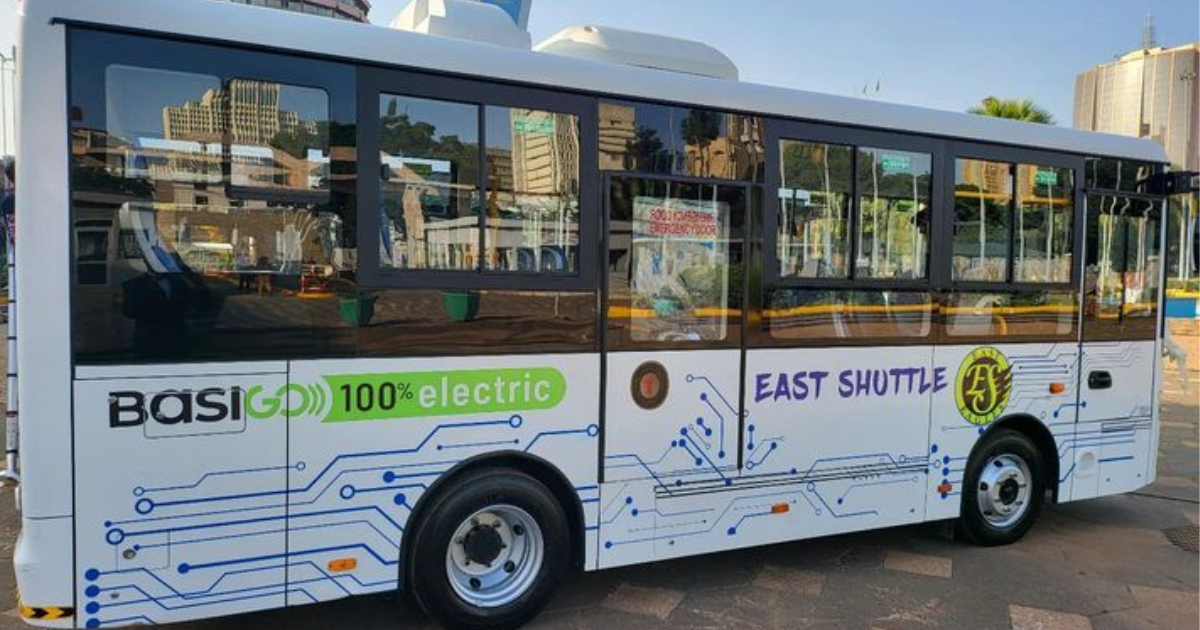BasiGo Secures $6.6M to Start Commercial Assembling of EVs in Kenya

BasiGo, Kenya’s foremost electric vehicle manufacturer has announced that it has secured $6.6 million in equity funding to begin commercial assembly of electric vehicles in Kenya.
Mobility54, Toyota Tsusho’s corporate venture capital arm; Trucks VC, a transportation-focused venture capital fund in Silicon Valley; and Novastar Ventures, a global VC supporting entrepreneurs transforming African markets, co-led the equity funding round.
Moxxie Ventures, My Climate Journey (MCJ), Susquehanna Foundation, Keiki Capital, and OnCapital also participated in the round.
This brings BasiGo’s total funding in 2022 to $10.9 million, allowing the EV manufacturer to meet its targets of 100 units of locally manufactured public transportation vehicles (PTVs) and charging infrastructure by the end of 2023, as it begins assembling electric buses in Kenya next month, ramping up its production of PTVs.
Additionally, after completing a six-month pilot program in Nairobi, Kenya, the startup plans to deliver 15 of the 100 buses, which will be built with parts from China’s EV manufacturer BYD Automotive, in January of next year. It also intends to expand its charging infrastructure network, with an initial focus on Nairobi, where the majority of its clients are based.
Speaking on the round, BasiGo CEO, Jit Bhattacharya, who co-founded the startup with Jonathan Green said “BasiGo is thrilled to have the backing of investors who are leaders in the automotive sector and climate finance. Over 90% of Kenya’s electricity already comes from renewables. Yet Kenya’s transport sector relies entirely on imported petroleum fuels. By electrifying Kenya’s public transport, we can make an immediate dent in climate emissions, clean up the air in our cities, and give bus owners relief from the rising cost of diesel. With this new funding, BasiGo is ready to bring the benefits of state-of-the-art electric transport to all people in Africa.”
What You Should Know BasiGo
Kenya’s public transportation system includes over 100,000 privately owned buses and minibuses known as matatus.
Also, as part of a fleet operation with two Nairobi bus operators, Citi Hoppa and East Shuttle, BasiGo’s electric buses have traveled over 110,000 kilometers and carried over 140,000 passengers.
Customers have already placed over 100 reservations with the e-mobility company, which recently announced partnerships with KCB Bank and Family Bank to provide up to 90% financing to owners for the purchase of an electric bus.

Furthermore, the buses will be available in 25 and 36-seater configurations, with a range of approximately 250 kilometers, enough to cover daily round trips. However, the Kenyan public transportation industry, which is currently dominated by fossil-fuel buses is rather expensive as against BasiGo buses which are cheaper and cleaner alternative.
Explaining the rationale for the investment, Takeshi Watanabe, CEO of Mobility54, in a statement stated, “We strongly believe in the potential of electric buses in Africa.” BasiGo’s strong implementation capability and cutting-edge technology are critical to converting conventional diesel buses to environmentally friendly electric buses. We are very excited to form a strong partnership with BasiGo and to help them grow by fully leveraging the business assets under Toyota Tsusho and CFAO.”
Jeff Schox, General Partner of Trucks VC on his part said “At Trucks, we back entrepreneurs building the future of transportation. We invested in BasiGo because their Pay-As-You-Drive platform is the key to electrifying and modernizing the massive informal public transport market in Africa.”
Driving EVs’ Adoption through Pay-As-You-Drive model
Although the high upfront cost has been identified as the most significant barrier to electric bus adoption in emerging markets, with BasiGo’s Pay-As-You-Drive model, owners can purchase an electric bus for the same upfront cost as a diesel bus.
Operators then pay BasiGo a subscription fee of KES 20 ($0.17) per kilometer, which includes leasing the E-Bus battery, charging at BasiGo charge stations, and comprehensive service and maintenance from the e-mobility company. Given recent increases in fuel prices, Nairobi bus operators are currently paying an estimated KES 30-50 ($0.25-$42) per kilometer for diesel fuel alone.
Also, the next 15 electric buses from BasiGo will be delivered in January and will begin service with many of Nairobi’s largest bus operators.
To support this expanded fleet, the company is already deploying high-power, DC fast-charging stations in strategic locations throughout Nairobi. According to the company, all buses delivered in 2023 will be locally assembled in Kenya, and the company plans to have over 1,000 electric buses in Kenya by the end of 2025.
The two EV startups in Kenya targeting the mass transit sector are BasiGo and its main competitor, Opibus. The introduction of their buses coincides with the government’s plans to build a Bus Rapid Transit (BRT) network powered by green (electric, hybrid, and biodiesel) vehicles, presenting a significant business opportunity for EV players in the market.
